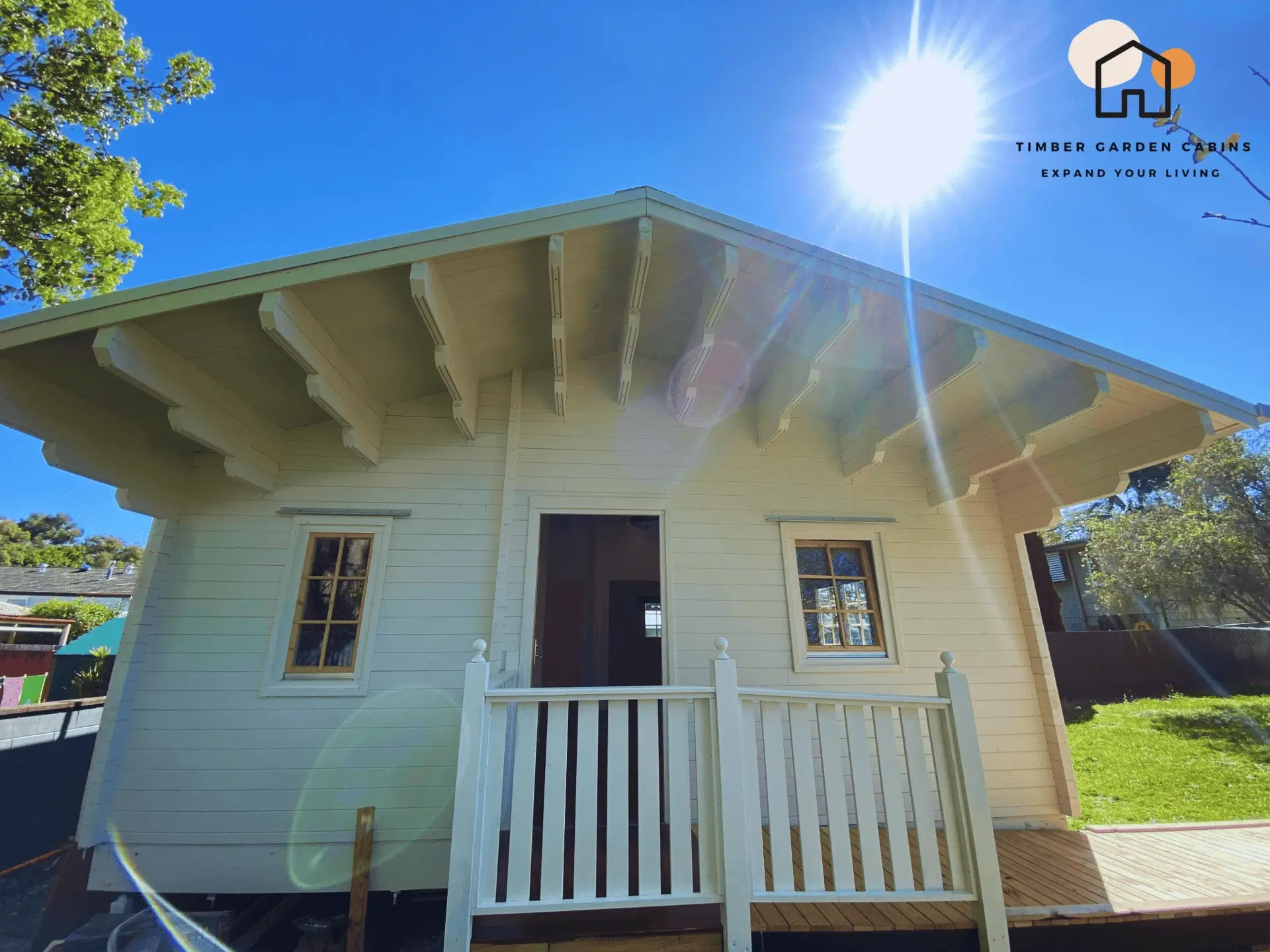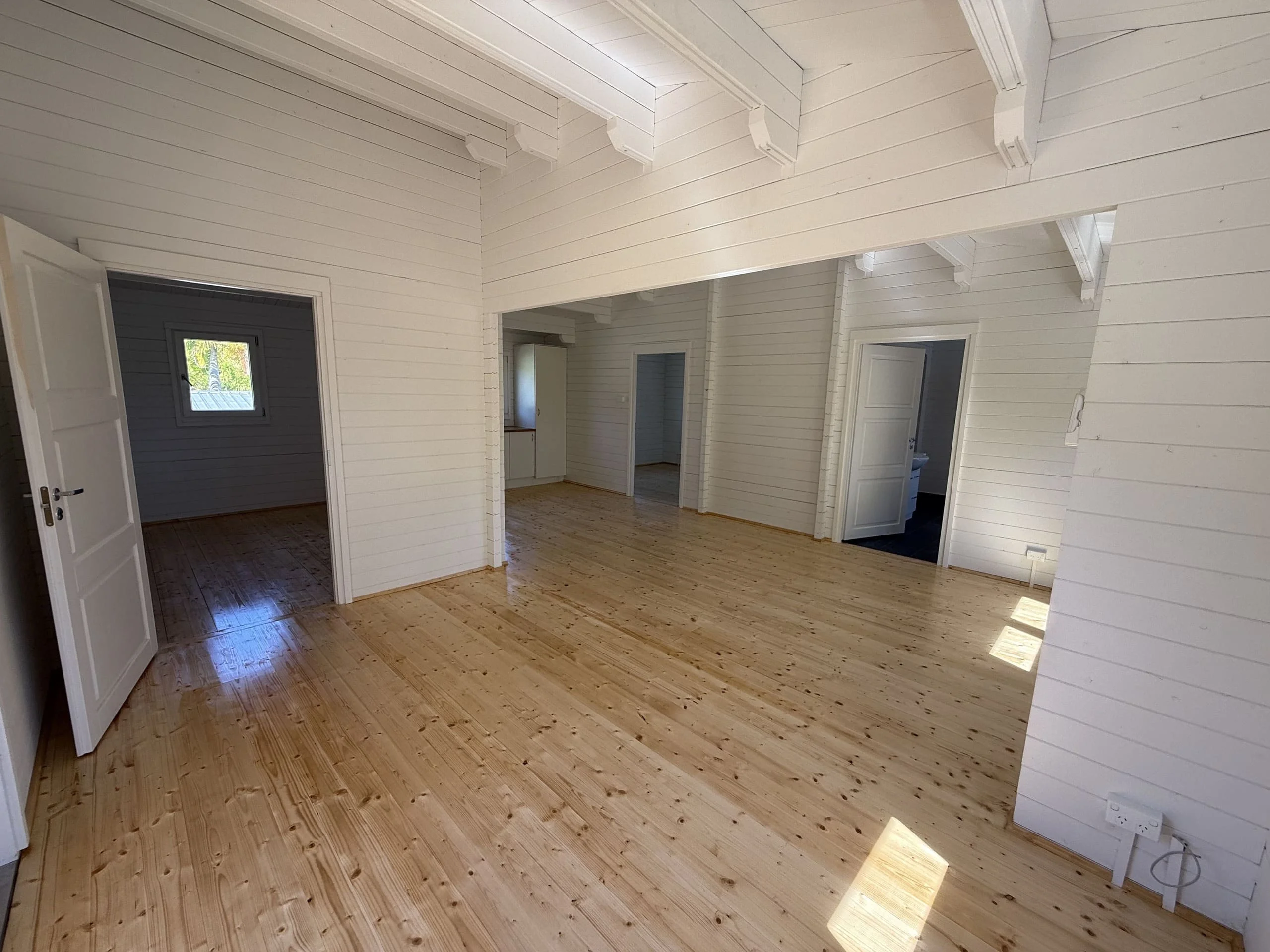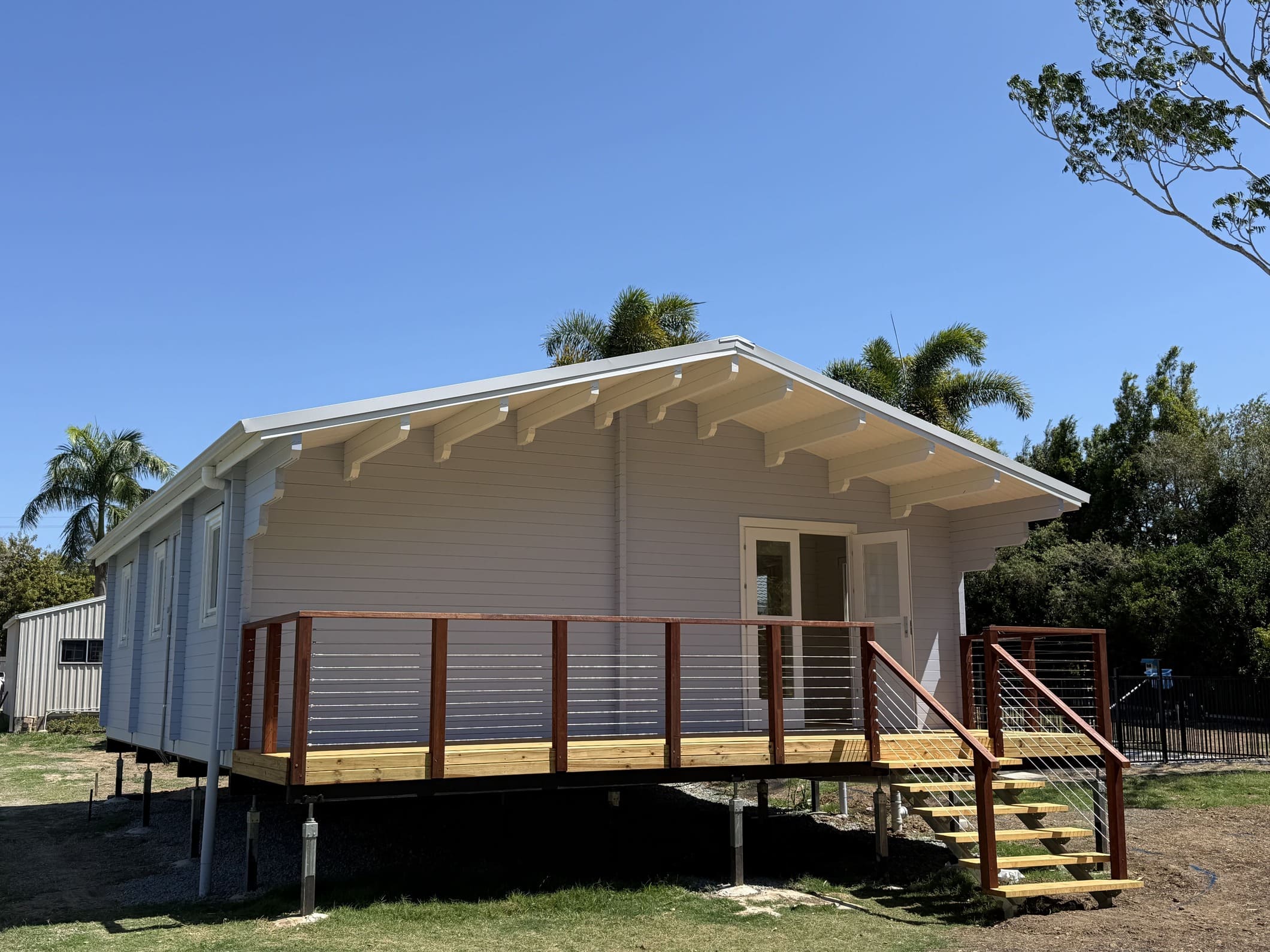Summary
A granny flat can be a valuable asset, providing homeowners with a steady source of rental income. Whether you plan to rent it out on a long-term basis or as a short-term rental, understanding the market demand, legal considerations, and financial benefits is key to maximizing your investment. This article explores the steps involved in transforming your granny flat into a profitable rental property, offering expert insights and real-life success stories to help you make informed decisions.
Introduction
Granny flats are becoming increasingly popular, not just as an extra living space but as an income-generating opportunity. With rental property demand on the rise, converting a granny flat into a rental can offer financial stability. Whether you’re looking for a steady long-term tenant or want to capitalize on short-term vacation rentals, proper planning is essential. This guide will walk you through everything you need to know to successfully rent out your granny flat, including potential upgrades, tenant management, and marketing strategies.
1. Understanding Rental Demand
Before renting out your granny flat, research the rental market in your area. High-demand areas can fetch higher rental prices, while suburban locations may require competitive pricing. Understanding market trends can help you position your rental effectively and determine whether a short-term or long-term rental model would be more profitable.
In-Depth Understanding of Rental Demand
Understanding rental demand is essential before listing your granny flat for rent. Factors such as location, local job opportunities, and tenant preferences influence how much rental income you can generate. Below is a detailed breakdown of key factors affecting rental demand:
Factors Affecting Rental Demand
- Proximity to public transport and amenities: Locations near train stations, bus stops, shopping centers, and essential services are highly desirable. Tenants value convenience and accessibility when choosing a rental. Tenants often prefer locations with easy access to schools, shopping centers, hospitals, and public transportation hubs.
- Employment hubs and universities nearby: Granny flats near major employment centers, business districts, or universities attract working professionals and students, increasing rental demand. Properties close to business districts, universities, and research institutions attract professionals and students looking for convenient housing options.
- The popularity of short-term vs. long-term rentals in your area: Research whether your area is more suitable for short-term vacation stays or long-term tenants. This will help determine the best rental strategy for maximizing profits. Assess whether your location is more suitable for travelers seeking short-term stays or tenants looking for long-term rentals.
- Seasonal variations that can impact demand: Some areas experience fluctuating rental demand due to tourism seasons, university semesters, or corporate relocations. Adjust pricing and marketing strategies accordingly. Some areas experience fluctuating demand due to tourism, university semesters, or corporate relocations.
- Competitive pricing in your location: Analyze rental prices of similar properties in your area to determine an attractive yet profitable rental rate. Pricing too high can deter tenants, while pricing too low may reduce your returns. Researching similar properties in your area will help you set the right rental price to attract tenants while maximizing profitability.
- Future developments and infrastructure projects: Upcoming projects such as new transport links, shopping centers, or business districts can boost rental demand and property value over time. Upcoming transit improvements, commercial hubs, or lifestyle precincts can increase rental demand and property value.
- Demographics and target market: Consider the needs of potential renters, such as young professionals, students, or retirees. Tailoring your rental offerings to match the preferred demographic will improve occupancy rates. Understanding the potential tenant demographic will help tailor your property to attract the right audience.
- Safety and crime rates: A safe neighborhood with low crime rates is a significant factor in attracting tenants. Installing security measures such as cameras and alarm systems can also enhance rental appeal. Security plays a big role in rental demand, with safer areas attracting more tenants.
2. Short-Term vs. Long-Term Rentals
Deciding between short-term and long-term rentals will impact your earning potential and management responsibilities. Weigh the pros and cons of each option to determine the best fit for your investment goals.
Choosing Between Short-Term and Long-Term Rentals
Deciding whether to rent your granny flat on a short-term or long-term basis is a critical decision that affects profitability, management requirements, and tenant relations. Below is an in-depth exploration of the benefits and drawbacks of both rental strategies to help you determine the best fit for your investment goals.
Pros & Cons of Short-Term Rentals
Pros:
- Higher rental income potential due to daily or weekly pricing flexibility.
- Opportunity to adjust rental rates based on peak seasons or events.
- Flexibility to use the granny flat for personal stays when unoccupied.
- Greater tax deductions for expenses like cleaning, utilities, and repairs.
- Appeals to travelers, business professionals, and digital nomads.
- Easier to maintain as tenants stay for shorter periods, reducing wear and tear.
Cons:
- More management effort, as guest turnover requires frequent cleaning and maintenance.
- Possible restrictions from local councils on short-term stays.
- Inconsistent occupancy rates may lead to unpredictable cash flow.
- Higher maintenance costs due to frequent usage and wear and tear.
- Requires active marketing to keep occupancy rates high.
Key Considerations for Short-Term Rentals
Short-term rentals, such as those listed on Airbnb or vacation rental platforms, can be lucrative but require active management. Here are key factors to consider:
- Target Market: Short-term rentals attract tourists, business travelers, and digital nomads who need temporary housing.
- Dynamic Pricing Strategy: You can adjust rental rates based on peak seasons, events, or demand fluctuations.
- Maintenance Demands: Frequent guest turnover may lead to higher maintenance and cleaning costs.
- Local Regulations: Some councils impose restrictions or require permits for short-term stays, so compliance is crucial.
- Marketing Requirements: Successful short-term rentals rely on strong marketing, guest reviews, and an engaging online presence.
Pros & Cons of Long-Term Rentals
Key Considerations for Long-Term Rentals
Long-term rentals provide stability and lower management demands, making them ideal for landlords seeking consistent income. Here are the key aspects to consider:
- Steady Income Stream: Monthly rental payments ensure reliable financial returns.
- Lower Turnover Costs: Fewer tenant changes reduce administrative and maintenance expenses.
- Lease Agreement Protection: A signed lease outlines rental terms, reducing uncertainty.
- Limited Flexibility: Unlike short-term rentals, long-term leases prevent landlords from adjusting rent frequently or repurposing the space easily.
- Tenant Screening Importance: Finding responsible, long-term tenants minimizes risks associated with property damage or missed payments.
By weighing these factors, landlords can determine the most suitable rental approach for their granny flat investment.
3. Legal Considerations & Council Regulations
Before renting out your granny flat, check local council regulations to ensure compliance with rental laws. Each region has specific rules governing rental properties, and failing to adhere to these laws can lead to fines or legal disputes.
Legal Considerations & Council Regulations
Renting out a granny flat requires compliance with local laws and regulations to avoid legal complications. Understanding and adhering to these regulations will ensure a smooth rental experience and prevent potential fines or disputes. Below are some critical legal considerations:
- Zoning restrictions: Check local zoning laws as some councils restrict granny flats to family use only. Ensure your property qualifies for rental purposes.
- Short-term rental permits: Some areas require property owners to obtain a license or permit before listing their granny flat on short-term rental platforms such as Airbnb. Research local policies before proceeding.
- Lease agreements: A well-drafted lease agreement that complies with state rental laws is essential. It should cover rental amounts, security deposits, tenant obligations, and lease duration.
- Insurance policies: Protect your investment with landlord insurance. This covers risks such as property damage, liability claims, and rental income loss.
- Safety and health regulations: Ensure that your granny flat meets all safety requirements, including fire safety, proper ventilation, and secure entry points. Smoke detectors and fire extinguishers should be installed as per regulations.
- Tax implications: Rental earnings may be subject to income tax and, in some cases, GST. Consult with an accountant to understand the tax obligations and deductions available to you.
- Eviction laws and tenant rights: Familiarize yourself with tenancy laws in your area. Eviction processes must be legally compliant, with proper notice given to tenants when necessary.
- Occupancy limits: Some regions enforce limits on the number of tenants allowed per unit. Ensure compliance with these regulations to avoid legal complications.
- Building compliance: If your granny flat was recently built, confirm that it meets all local building codes and is legally habitable for rental purposes.
- Utility and council rates: Check if your local council requires additional fees or permits for rented granny flats. Some councils may have specific water or electricity metering requirements for secondary dwellings.
4. Marketing Your Granny Flat
A well-marketed granny flat attracts quality tenants quickly and maintains high occupancy rates. Implement a strategic marketing plan to showcase the best aspects of your rental property.
Effective Marketing Strategies for Your Granny Flat
Marketing your granny flat effectively is crucial for attracting quality tenants and maintaining high occupancy rates. A strong marketing strategy ensures your property stands out from the competition and appeals to your target audience. Below are detailed strategies to help you successfully market your granny flat:
- Professional photography: High-quality images make your listing more appealing and help potential tenants visualize the space. Ensure the property is well-lit, clean, and staged properly before taking photos.
- Compelling descriptions: Write engaging descriptions that highlight the best features of your granny flat, such as modern amenities, security features, proximity to public transport, or nearby attractions.
- Multi-platform listing: Maximize exposure by listing your property on multiple platforms, including Airbnb, real estate websites, social media, and local classifieds. Each platform attracts a different audience, increasing your chances of finding the right tenant.
- Pricing strategy: Conduct market research to set a competitive rental price that attracts tenants while ensuring a good return on investment. Consider pricing adjustments based on demand, seasonality, and local trends.
- Video tours and virtual walkthroughs: Many prospective tenants prefer virtual viewings before committing to an in-person visit. Offering video tours or 360-degree virtual walkthroughs can increase engagement and reach a wider audience.
- Promotions and incentives: Consider offering move-in specials, flexible lease terms, or small discounts to attract tenants quickly. This is particularly useful in competitive rental markets or during low-demand periods.
- Strong online presence: Encourage positive reviews from previous tenants to build credibility and attract more interest. Engage with inquiries promptly and maintain an informative online listing with updated availability.
- Local partnerships: Collaborate with local businesses, relocation agencies, or corporate housing services to find quality tenants who may need long-term or short-term accommodations.
- Signage and word-of-mouth marketing: If allowed by local regulations, place a rental sign outside the property or inform neighbors and community members that the unit is available. Personal recommendations can bring in reliable tenants.
- Social media and targeted ads: Utilize social media platforms such as Facebook Marketplace, Instagram, and LinkedIn to showcase your granny flat. Paid ads targeting specific demographics can help you reach ideal renters quickly.
5. Tenant Selection & Property Management
Finding the right tenants is crucial for maintaining a smooth rental experience. A strong screening process can help prevent property damage, rent payment delays, and legal disputes.
Best Practices for Tenant Selection & Property Management
Selecting the right tenants and maintaining a well-managed property are essential steps in ensuring a hassle-free rental experience. Proper tenant screening, clear communication, and proactive property management can prevent issues such as late payments, property damage, and legal disputes. Below are some best practices to help you manage your granny flat rental efficiently:
- Conduct comprehensive background and credit checks: Reviewing a tenant’s financial and rental history helps mitigate the risk of late payments and potential evictions.
- Verify employment and request previous landlord references: Confirming income stability and speaking with previous landlords provides insights into a tenant’s reliability and rental behavior.
- Set clear expectations for rental payments and maintenance responsibilities: Outline rent due dates, payment methods, and tenant responsibilities for property upkeep to avoid misunderstandings.
- Use a legally binding lease agreement to protect both parties: Ensure all rental terms, conditions, and obligations are documented to prevent disputes.
- Regularly inspect the property and address maintenance issues promptly: Conducting scheduled inspections and quick repairs helps maintain the property’s value and tenant satisfaction.
- Consider hiring a property management service for a hands-off approach: If managing the property becomes overwhelming, professional property managers can handle tenant screening, maintenance, and rent collection.
- Establish clear communication channels with tenants: Open lines of communication ensure tenants can report issues, ask questions, and stay informed about rental policies.
- Provide a welcome guide with house rules, emergency contacts, and maintenance procedures: This helps tenants understand expectations and how to handle common issues.
- Ensure the property is well-maintained with prompt repairs and upgrades when needed: A well-kept property attracts and retains quality tenants while preventing larger maintenance issues in the future.
- Keep thorough records of rental payments, inspections, and tenant interactions for legal and financial purposes: Documentation can protect landlords in case of disputes and is useful for tax and business purposes.
Call to Action
Thinking about renting out your granny flat? Book your free Granny Flat consultation here for expert advice on maximising your rental income and designing a profitable rental space.
Conclusion
A well-managed granny flat can become a reliable source of income, whether through short-term or long-term rentals. By understanding market demand, following legal regulations, marketing effectively, and selecting responsible tenants, you can optimize your rental investment.



